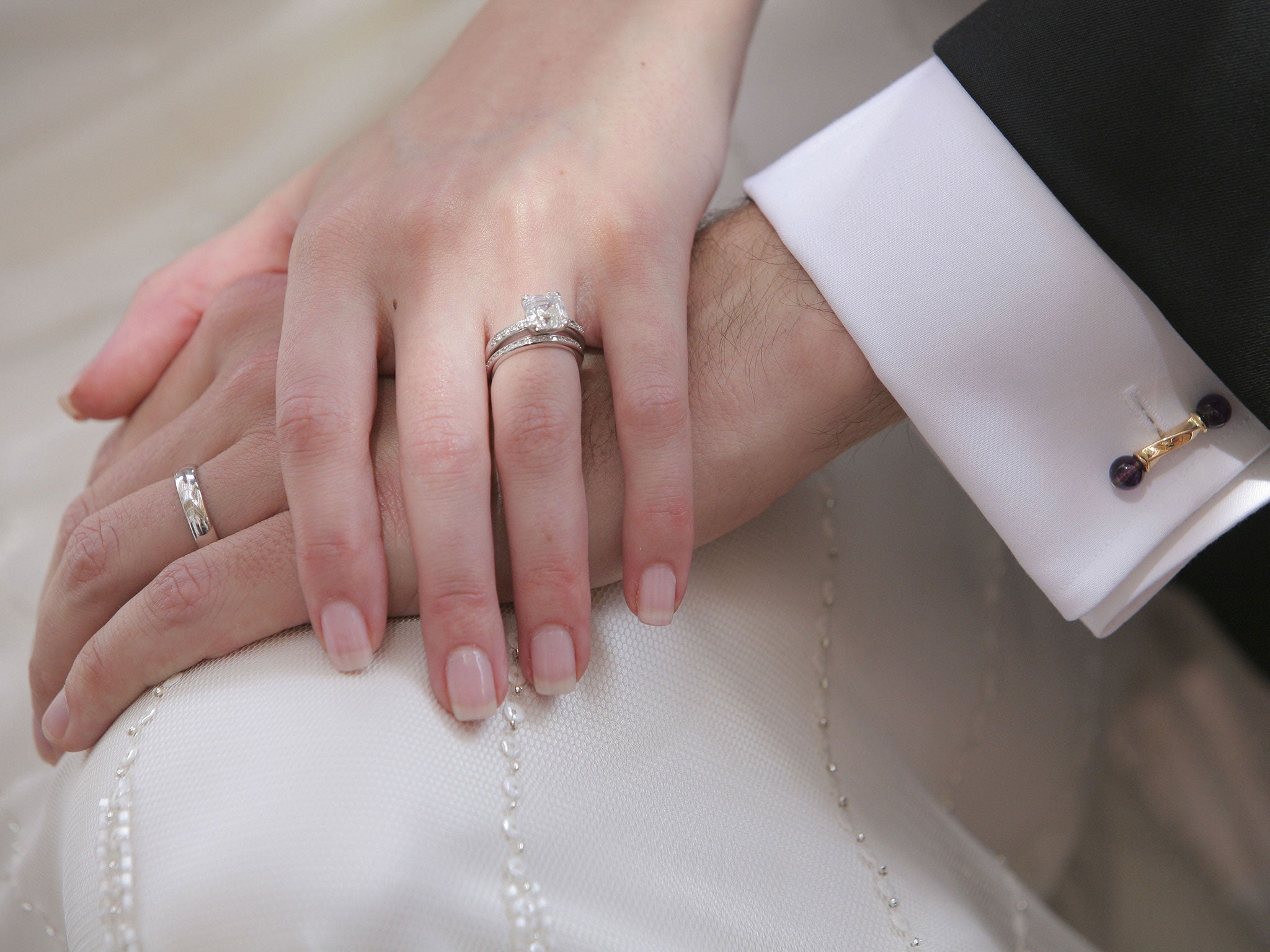Expecting too much of your spouse 'can erode a marriage'
'Some people demand too much from their marriage because they are requiring that their marriages fulfil needs that they are not capable of achieving'

Your support helps us to tell the story
From reproductive rights to climate change to Big Tech, The Independent is on the ground when the story is developing. Whether it's investigating the financials of Elon Musk's pro-Trump PAC or producing our latest documentary, 'The A Word', which shines a light on the American women fighting for reproductive rights, we know how important it is to parse out the facts from the messaging.
At such a critical moment in US history, we need reporters on the ground. Your donation allows us to keep sending journalists to speak to both sides of the story.
The Independent is trusted by Americans across the entire political spectrum. And unlike many other quality news outlets, we choose not to lock Americans out of our reporting and analysis with paywalls. We believe quality journalism should be available to everyone, paid for by those who can afford it.
Your support makes all the difference.Having high standards in a marriage where there are already severe problems can further break down the relationship, according to a new study.
Research published in the Personality and Social Psychology Bulletin showed that by expecting too much in terms of how caring or supportive a spouse is expected to be only improved marriage satisfaction among people in strong relationships.
The conclusions were reached after researchers collected data from 135 newlywed couples over four years.
Each spouse was asked to fill in a survey to determine information about their standards, their marital satisfaction and whether there were any marital problems on multiple occasions during the study.
Dr James McNulty, a professor of psychology at Florida State University who conducted the study called 'Should Spouses Be Demanding Less From Marriage?', found that the couples who had the highest levels of marriage satisfaction had low levels of indirect hostility.
This indicated that they had a stronger marriage and were therefore more able to meet the higher standards expected of one another.
Commenting on the standards, he said: “Some people demand too much from their marriage because they are requiring that their marriages fulfil needs that they are not capable of achieving, either because they have limited time, energy, effort, or skills to apply to their marriage.”
“But other people demand too little from their marriages,” he said. “Their marriage is a potential source of personal fulfilment that they are not exploiting.”
He added: "Ultimately, spouses appear to be best off to the extent that they ask of their marriages as much as, but not more than, their marriages are able to give them."
Dr McNulty also found that indirect hostility was “harmful for all couples” and more destructive than direct hostility, where a spouse openly blames their partner for a problem.
Direct hostility was more positive because it communicated to spouses that something in their marriage needed to change.
Dr McNulty concluded: “This research suggests people need to have some idea of what they can get from marriage before they get it.”
“That is obviously difficult, which may explain why couples experience a mismatch between what they demand and what they can actually attain.”
Join our commenting forum
Join thought-provoking conversations, follow other Independent readers and see their replies
Comments